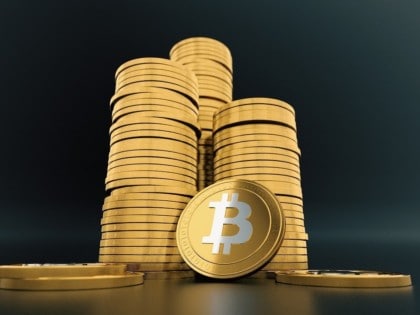
Former United States Treasury Secretary Timothy Geithner is making the media rounds this week in order to promote his new book “Stress Test,” a behind the scenes account of the financial crisis a few years ago. The interviews as well as his op-ed published in the Wall Street Journal have been mostly about the bailouts and the economy, but his latest discussion involved bitcoin.
Speaking with television network Fusion’s Jorge Ramos, Geithner was asked regarding his opinions about the peer-to-peer decentralized virtual currency, but he didn’t seem to be rather interested in discussing it.
When questioned if he would acquire bitcoin, Geithner responded:
“No, I wouldn’t. It depends what your objective is,” he said. “As a way to save money, as an investment vehicle? No. It’s a very volatile thing. As a way to make payments? It’s got some risks because its value fluctuates hugely over time. So, it’s got a lot of challenges.”
Geithner conceded, though, that he is “the wrong person to ask” because he doesn’t “really understand it.”
Jack Lew, the Treasury Secretary successor to Geithner, has warned for months now that regulations for the digital currency are coming soon. Regulations at the federal level have yet to come to fruition, which has caused some confusion in the marketplace and in the bitcoin community.
The former Treasury Secretary, who was an instrumental figure in the Obama administration at the height of the economic collapse, is now president of private equity firm Warburg Pincus. During his tenure and since leaving public office, Geithner has been vehemently criticized by a number of people, including David Stockman, former Reagan budget director and bestselling author of “The Great Deformation, who called Geithner a “bag carrier for Wall Street.”
Meanwhile, Sheila Bair, former chair of the Federal Deposit Insurance Corporation (FDIC), published an op-ed piece in Fortune magazine this week in which she accused Geithner of being content with the policy of “too big to fail” rather than supporting genuine reforms of the financial system.
“He accepts the risks of moral hazard when it comes to bailing out homeowners, but not the mega-banks. He almost naively assumes that the titans of Wall Street can somehow rise above the temptation to take outsized risks when they know the government will always be there to bail them out,” Bair noted. “Tim’s justification of the bailouts is based on a false dilemma: that our only choices were either to do nothing or to pursue the over-the-top measures, which we did.”
In 2010, then-Texas Republican Congressman and three-time presidential candidate Ron Paul harshly censured Geithner of being complicit in the AIG bailout scandal. Paul accused Geithner of trying to compensate banks for making mistakes and then concealing the fact from taxpayers.







